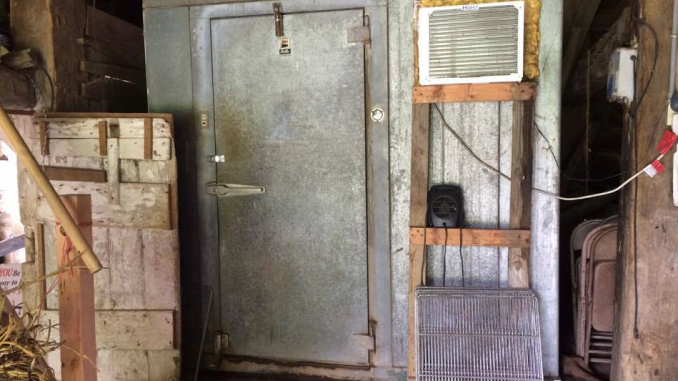
Family of New Paltz is adopting a new way to store their food that local farmers have used for years.
The county-based food pantry, funded by a $25,000 grant from the Local Economies Project, provides food and other emergency services to those in need and will install its first Cool Bot refrigeration unit within the next two months.
Town representatives behind the project said it is not a matter of not having enough food or enough people to feed, but about changing the infrastructure and system for getting the food out.
According to Family of New Paltz’s Executive Director Michael Berg, this is part of a county-wide effort to “store produce more adequately until they can be distributed.”
The project will build five walk-in coolers throughout the area which the overseeing organization, Family of Woodstock, services. New Paltz’s refrigeration system will distribute produce to the southeast portion of Ulster County. It will also provide storage for five neighboring food pantries, including St. Joseph’s Church, the United Methodist Church and Family Outreach.
Berg explained that these local food pantries are open for a limited time each week. Currently, much of the food goes bad before it can be distributed.
“With this source, we will put food away in proper storage and give to people as they need it,” he said.
The food storage unit will have shelving and a lock-and-key system to which six participating food pantries will have access to for five days a week.
Construction of the unit will begin the second week of September at the New Paltz recycling center on Clearwater Road. Laura Petit, recycling coordinator for Town of New Paltz, said that the project has been in the making for about two years now.
“I’m really excited about this collaboration,” she said. “There are so many of us working in the same direction.”
Berg agreed, saying, “a lot of people are joining in this effort to make sure people in our county are fed,” noting that many local farmers donate to the food pantry.
Not only do local farmers provide produce, they are also responsible for the system that will cool the eight-by-ten-foot unit. About 10 years ago, New Paltz farmer Ron Kholsa, founder of Huguenot Street Farm, invented a cooling mechanism that has changed farming in the area. His invention, the Cool Bot, helps farmers store food for longer and cheaper. It is a temperature control device that “fakes out” air conditioners to continuously cool the unit, keeping it at constant refrigerator temperature.
While many refrigeration units can cost anywhere from $10,000 to $25,000, installing a Cool Bot inside a small, air-conditioned building costs as little as $600 to $800. For this reason, many local farms have used the Cool Bot since it hit markets in 2006.
“I don’t know how I’d function without it,” said Heather Wodehouse, who works at Phillies Bridge Farm in New Paltz.
Phillies Bridge has had their refrigeration unit and Cool Bot for four years. It is an important asset for farmers like Wodehouse who pick vegetables for Community-Supported Agriculture (CSA). Phillies Bridge CSA allows local families to pick up their prepaid fruits and vegetables every Tuesday and Saturday throughout the season, which lasts from June to mid-November. Without a reliable cooling system, the produce goes bad in between pick-up days, making it more difficult to distribute food in a timely manner.
Wodehouse said she makes use of the Cool Bot-powered fridge unit frequently throughout her workday. Instead of leaving produce out in the sun waiting to be picked up, she said she brings the food out of the unit as customers arrive, noting that warm fruits lose nutrients.
Petit also mentioned that health and nutrition is a main priority of Family of New Paltz’s mission which the Cool Bot will help achieve. Last year, the organization distributed 63,000 pounds of food, 10,000 of which were frozen to be distributed throughout the winter.
“In the winter months, people don’t eat very well, especially if they don’t have enough money,” Petit said. “This will provide good, nutritional foods to families and improve our fresh produce.”
In addition to making foods healthier, she noted that 30 to 40 percent of total waste can be traced back to food waste. By keeping food fresh longer, they hope to reduce this waste.
Family of New Paltz’s unit is expected to be complete by mid-October.
